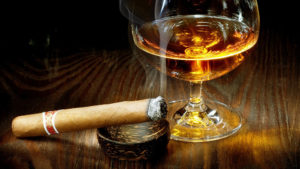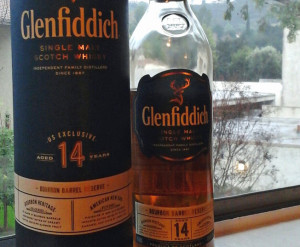By Richard Thomas

(Credit: Michael Stern/Wikimedia Commons CC BY-SA 2.0)
One of the few opinions I find are commonly held in world whiskeydom—common among industry types and enthusiasts, bar people and journalists—is how Scotch Whisky produces the biggest bunch of snobs around. Even the snobs themselves sometimes agree with that assertion, taking a perverse pride in what most would think of as a flaw. How is it that Scotch Whisky became the enclave for the most intense snottiness in all of world whisky?
Purism
The roots of Scotch Whisky snobbery are found in the perception, one that extends far beyond the ranks of just the snobs, that blended whisky is synonymous with the cheap stuff. That, in turn, stems from the very origins of the modern Scotch industry.
In 1830, an Irishman named Aeneas Coffey perfected the innovations found in several experimental still designs to invent the Coffey Still, sometimes simply referred to as the column still. This new invention led to the creation of grain whiskey, a lighter spirit made from grains other than barley. The still was also more efficient to run than the pot still, making grain whiskey cheaper too.
Ironically, it was not the Irish, but the Scots who adopted the new technology. Using grain whisky, grocers and merchants in the late 19th Century developed the business of blending, and many of the big blended Scotches (Johnnie Walker, Dewars, etc.) were born. The new blended whiskies were not only cheaper to make, but also had more approachable flavor profiles.
It’s that first part that gave rise to the modern perception that blended whiskies are all the cheap stuff. A certain disdain for grain whisky and anything containing it continues to this day, this despite the many excellent single grain whiskies and blended whiskies on the market disproving the notion that either category is exclusively cheap.
Exclusivity
Another thing about blended whisky vs. malt whisky is that the former dominates the market, and snobbery loves exclusivity while slighting the commonplace (the actual quality of the commonplace not entering into it). None of the top 10 Scotch Whisky brands is a single malt. Blended whisky dominates the marketplace, and to some it just doesn’t matter how sublime Grant’s 18 Year Old might actually be; it’s Grant’s, that is a commonplace brand, so it’s not worth their attention.
This even extends to the top single malt sellers, The Glenfiddich and The Glenlivet. These two are by far the biggest movers of single malt in the business, each selling over a million cases per year. For that very reason, the two brands are often underrated as well.
Basically, whenever something is rare, it attracts snobbery. And Scotch Whisky is odd in that it produces rarity with reliable regularity.
Nerdiness
One of the fun parts of being an enthusiast is mastering knowledge. When it comes to this aspect of a whisky hobby, the thing that separates a snob from an enthusiast is that the enthusiast enjoys learning and knowing, whereas the snob enjoys feeling superior for knowing more than anybody else.
Scotch Whisky has copious lore to master. There are over 100 active distilleries in Scotland today, each with its own particular take on the production process. Some do their own maltings; every malt distillery has its own particular pot still design; some are very specific about the cask stock they use for maturation; local climate and location can have its own particular impact on the flavor profile; etc. Then one can add to that the features of the defunct distilleries, the styles of particular Master Blenders. From a practical point of view, it’s a limitless pool of information to master.
Other whiskey industries share these features, but not to the same degree as the Scotch industry. Take the nerdiness, for example. Thanks to the more and bigger hiccups suffered by the American and Irish industries, neither has the same breadth and depth of distilleries as Scotland does, so there just isn’t as much lore to it. In my opinion, Scotch Whisky produces a more intense snobbery than any other type of booze out there, even wine. There are far more wine snobs, but a truly wretched Scotch snob is just so much more insufferable than his worst vino-loving counterpart.
 The Whiskey Reviewer A World of Whiskey, Poured Every Weekday
The Whiskey Reviewer A World of Whiskey, Poured Every Weekday



Another thing to mention is that Scotch makers can use that cachet of being “authentic” and “rare” and keep those pricetags high. They know it’s good for business. Anyways as anyone reading here would know, when push comes to shove, the proof is in the pudding. Just keep tasting them all and form your own opinion. Knowing the histories and process is fun but ultimately you want to enjoy your booze in the end.
Thanks for this article. I started the hobby like many people by watching and reading recommendations, forums etc. Over time I started to notice strong bias against whisky A because B has to be better, and no matter where I looked, it has become increasingly annoying to me.
There’s many interesting and very good blends out there, I really like single grains, bourbons, Irish pot stills. One of my favourite cheap blends is Irish Powers Gold Label, that makes some people shrug how I can enjoy something like that? Well, I do and to my palate it’s amazing dram for the price.
In fairness, the more I read and the more I learn, I tend to believe that whisky merchants (forgive the old language here but I think it fits the bill) did their homework very well. Years ago I dont believe that many people argued about “dried orchard fruitiness” of their whiskey. Now, seems to me that every second drinker is more knowledgeable than many master distillers or blenders out there.
Yes, whiskey snobbery annoys me big time.
Kudos to you GSz! If more people shared your open mindedness then the world would be a better place. My shelf shares space with a variety of whiskey/whisky including scotch, american, irish, kentucky bourbons, rye, and more. I recently spied your Powers Gold Label and gave it a try…and I am not disappointed that I did so.
I have tendencies towards non peated scotch(es)….but I have room to enjoy a wide variety of good whiskey/whisky. Enjoy your dram….no matter where its contents were originated.